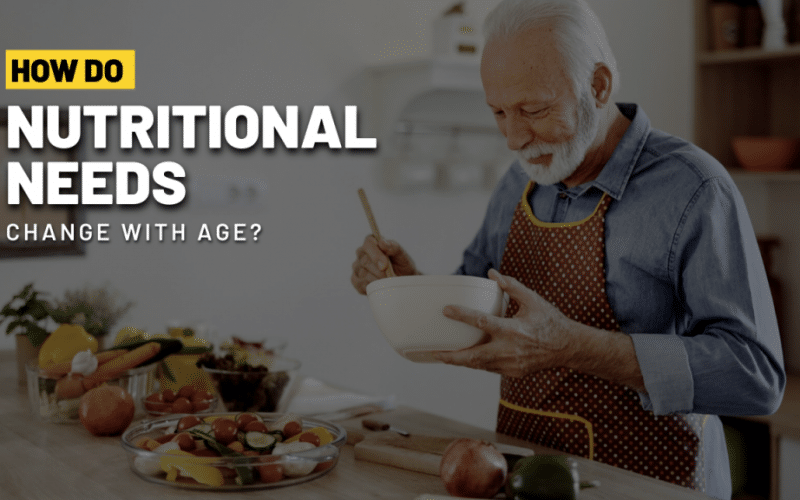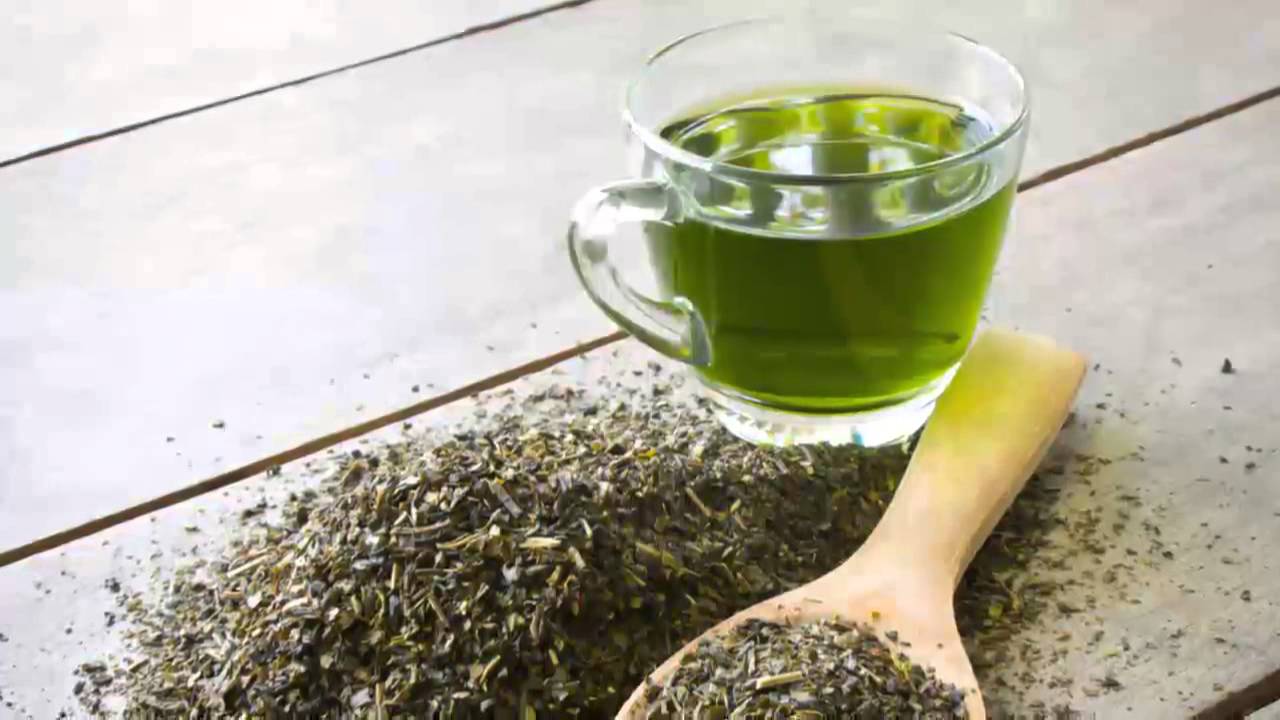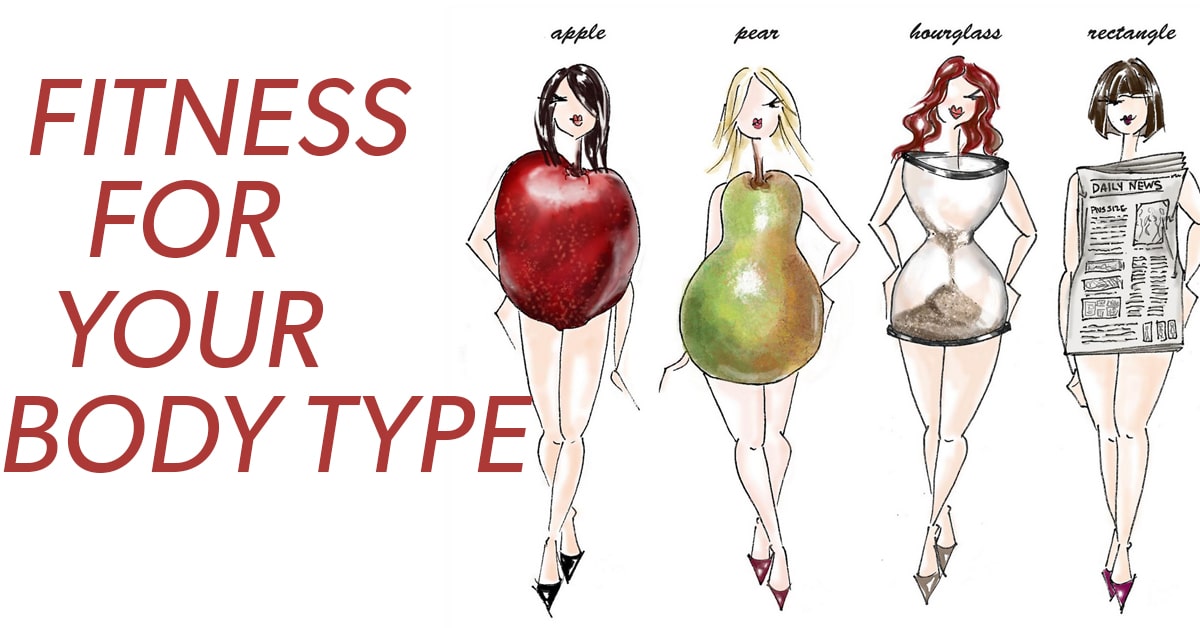As we age, our bodies begin to change in various ways – from shifting hormones and new aches and pains to growing physical and mental strengths. But one of the most important changes is our nutritional needs; what might have been adequate for nourishing a 20-year old you may not quite cut it twenty years later.
To ensure they’re making smart nutritional choices at every stage of life, health-savvy people should take stock of their unique needs as they age — because there’s more to healthy eating than just adding more nutrient rich foods or taking away the occasional guilty pleasure snack.
In this article, we’ll explore how nutritional needs vary across the lifespan and the specific ways they can be met to ensure optimal health. Read on to learn more!
How Aging Affects Nutritional Needs: 5 Key Areas
Eating right throughout your life is the key to warding off chronic diseases, and it’s important to remember that even older adults can make changes that will benefit their health.
Various studies have found that older adults, especially females, are at a higher risk of chronic illnesses like cancer, heart disease, osteoporosis, and anemia. This is mainly because of their decreased capacity to absorb vitamins and minerals, as well as other changes that occur in the body, like changes to muscle mass and hormones.
Some studies estimate that 20% of older people have atrophic gastritis, which is a condition where the stomach lining thins and causes a decrease in the production of digestive enzymes and absorption of vitamins and minerals; thus impairing healthy brain function.
To ensure that you’re eating an appropriate diet for your age, it’s important to understand how aging affects your nutritional needs:
Increased Calcium Intake for Bone Health
One of the biggest changes that occur in our nutritional needs as we age is an increased demand for calcium. As we grow older, our bones become more porous, and our body’s ability to absorb calcium begins to diminish.
Studies have found that the gut absorbs less calcium with age, which can lead to an increased risk of osteoporosis or brittle bone disease.
To ensure you’re getting enough calcium in your diet, it’s important to eat a variety of healthy foods that are rich in this essential mineral.
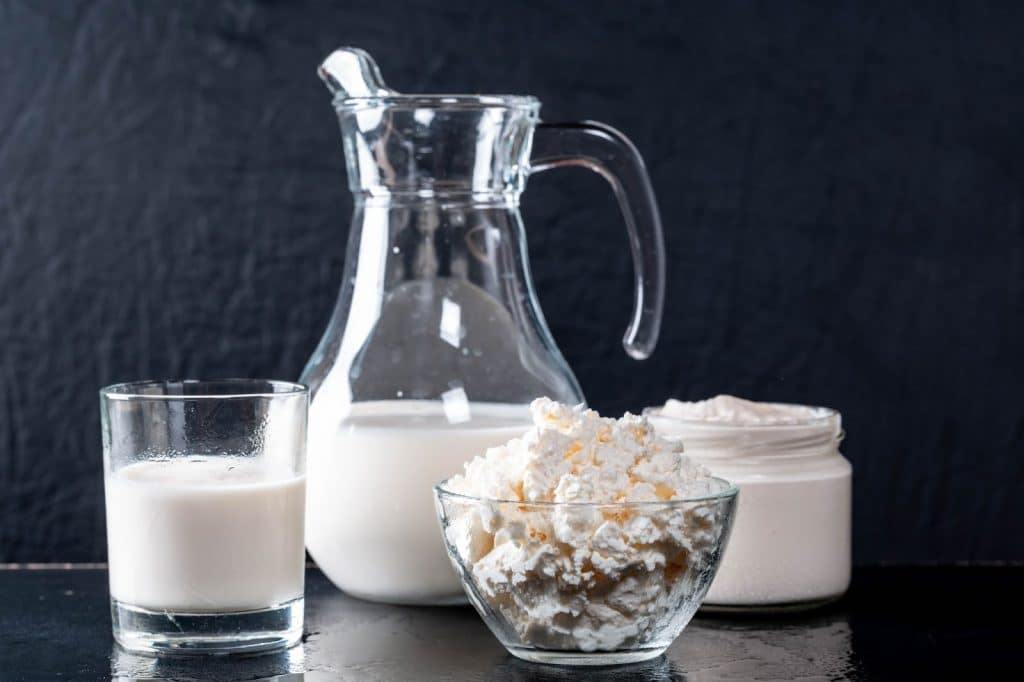
Dairy products such as milk, yogurt, and cheese are excellent sources of calcium, as well as dark leafy greens like kale and spinach. Other good sources include sardines with bones, tofu prepared with calcium sulfates, and fortified non-dairy milk such as almond or oat milk.
The ideal amount of daily calcium intake varies between individuals; however, the National Health Service recommends at least 700 mg per day for adults aged 19-64 years old. Additionally, women over 50 and men over 71 should aim for 1200 mg of calcium each day.
It’s also important to remember that your body can only absorb about 500 mg of calcium at one time, so it’s best to spread your intake throughout the day rather than take it all at once.
Vitamin D is also important for optimal absorption of dietary calcium, so make sure you’re getting enough from food sources like eggs or fortified foods such as orange juice and cereals, as well as from 10 minutes a day in the sun if possible.
Higher Protein Intake for Muscle Maintenance
Protein is essential for building and maintaining muscle mass, which tends to decrease with age.
Over the years, our bodies naturally begin to lose muscle mass and strength due to the gradual decline of hormones like testosterone and estrogen. This process, known as sarcopenia, can lead to a decrease in physical activity, increased risk for falls, and decreased independence.
In fact, adults aged 30 or older experience an average 3-8% loss in muscle mass per decade. This means it’s even more critical for seniors to make sure they’re getting enough protein in their diet.
Protein helps build, maintain and repair muscle tissue by providing the amino acids needed for muscle growth and repair. Studies have found that increasing daily protein intake to 1.0-1.2 grams per kilogram of body weight can help slow down the effects of sarcopenia and maintain functionality in elderly adults.
Good sources of protein include:
- Lean meats such as chicken or fish
- Dairy products like milk or yogurt
- Legumes such as beans and lentils
- Seeds like almonds or pumpkin seeds
It’s also important to note that dietary proteins are often more effective than supplemental forms. This is because they provide additional vitamins and minerals helpful for maintaining overall health in seniors, including calcium and B vitamins.
Fewer Calories, More Nutrients
As we age, our metabolic rate slows down, and our bodies become more efficient at storing energy. This means that we need fewer calories than we did when we were younger, yet we still need to consume the same amount of essential nutrients in order to remain healthy.
Studies have found that consuming the same number of calories as when we were younger can lead to extra weight gain, fatigue, and an increased risk for chronic diseases such as diabetes and heart disease.
For seniors, it’s important to be mindful of calorie intake and ensure they’re getting enough nutrients from their food.
Eating a balanced diet with plenty of fruits and vegetables can help you get all the essential vitamins and minerals your body needs. Additionally, it’s important for seniors to focus on quality sources of protein such as fish, lean meats, beans, and lentils in order to prevent muscle loss.
Nutritional needs also change with age because our ability to absorb certain vitamins and minerals decreases due to changes in our digestive system over time.
For example, seniors may benefit from adding B-complex vitamins into their diet since these are necessary for maintaining good energy levels and cognitive function. Similarly, nutrients like protein, calcium, and vitamin D are essential for maintaining strong bones, so it’s important to find ways to include these in your diet.
More Fiber to Aid Digestion
Constipation is a common problem among elderly people, and one of the primary causes is a lack of dietary fiber. Fiber helps form stool and promote regular bowel movements, which is why seniors need to make sure they’re getting enough of it in their diet.
Fiber comes in two forms – soluble and insoluble – and both are necessary for good digestion.
Soluble fiber dissolves in water to form a gel-like substance that helps slow digestion and makes you feel fuller longer. In contrast, insoluble fiber adds bulk to your stool and keeps food moving through your digestive system at a healthy pace.
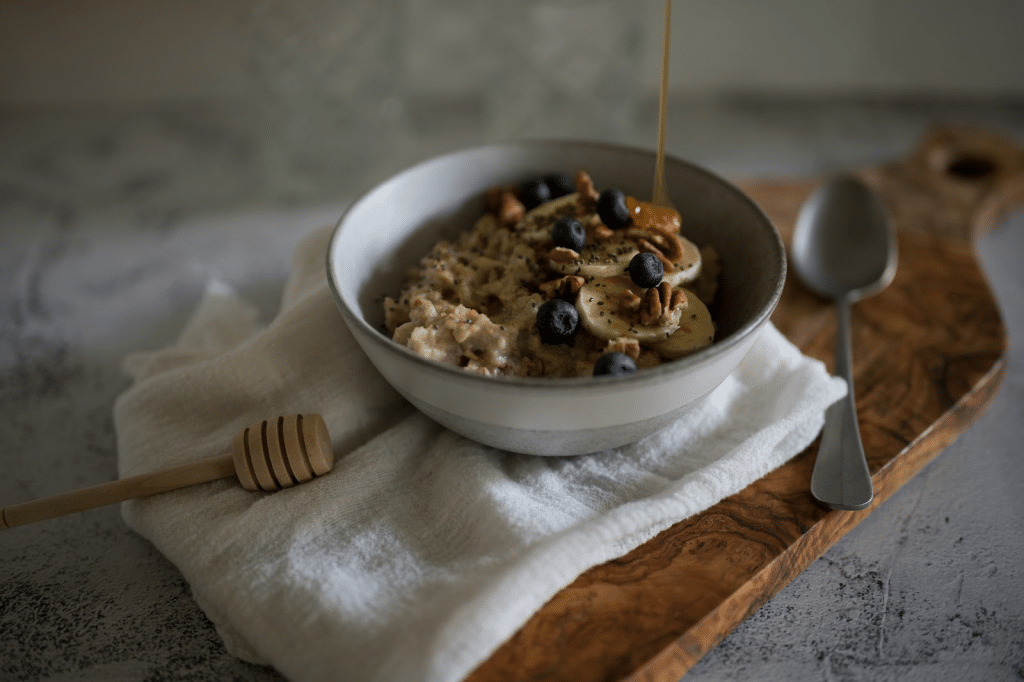
Good sources of soluble fiber include oats, apples, blueberries, oranges, pears, avocados, nuts, beans, carrots, and flaxseeds.
On the other hand, insoluble fibers can be found in:
- Whole grains such as wheat bran or bulgur wheat
- Nuts
- Seeds
- Dark leafy greens such as kale or spinach
- Certain fruits, including banana or pineapple
- Potatoes with their skin on
When increasing your daily intake of dietary fiber, it’s important to do so gradually because sudden increases can cause stomach cramps or gas.
Start by adding just one additional serving of fruits or vegetables per day, as well as choosing high-fiber foods when possible (whole grain bread instead of white bread). You can also add ground flaxseed to smoothies or oatmeal for an extra boost of healthy fats and fiber.
In addition to getting enough dietary fiber from food sources, seniors should make sure they’re drinking plenty of water throughout the day – at least 8 glasses – since water helps move food through the digestive tract and prevent constipation.
Vitamin B12 and Folate Supplementation
Vitamin B12 and folate are two essential vitamins involved in the production of red blood cells, as well as the proper functioning of our nervous systems.
Unfortunately, many seniors don’t get enough of these important vitamins due to factors like age-related digestive changes or poor dietary habits. In fact, an estimated 10–30% of people over 50 do not absorb as much vitamin B12 as they need, which can lead to serious health problems.
That’s why it’s important for seniors to make sure they’re getting enough Vitamin B12 and folate in their diets.
Good sources of B12 include:
- Eggs and dairy products like milk, yogurt, and cheese
- Fish such as salmon and tuna
- Meat, including beef or lamb
- Fortified breakfast cereals
- Vitamin B12 supplements
Folate is also important for seniors since it helps form red blood cells and reduces the risk of certain types of anemia.
Good sources of folate include:
- Leafy greens such as spinach, kale, or collards
- Liver
- Beans and legumes, including lentils, black-eyed peas, and chickpeas
- Fruits like oranges, papayas, and strawberries
- Fortified breakfast cereals
- Folate supplements
By including these foods in their diets, seniors can make sure they’re getting the vitamins they need to stay healthy and active.
Final Thoughts
Maintaining your health and well-being as you age is important for staying active and engaged in life. While many people think that our nutritional needs remain the same throughout our lives, this isn’t necessarily true – our bodies change as we get older, and so do our dietary requirements.
By incorporating foods high in fiber, protein, calcium, and vitamins B12 and folate into your diet, seniors can make sure they’re getting all the nutrients their bodies need to stay happy, healthy, and strong.
